Global program with the mission of enhancing cooperative capacity
On November 14, in Can Tho City, Stichting Agriterra Netherlands in collaboration with the Vietnam Cooperative Alliance and the Can Tho City Cooperative Alliance organized a workshop to summarize the "Farmers Focused Transformation" Program (FFT) for the period 2021-2025. The event gathered nearly 100 delegates from the Vietnam Cooperative Alliance, international organizations, businesses and 35 cooperatives supported by Agriterra.
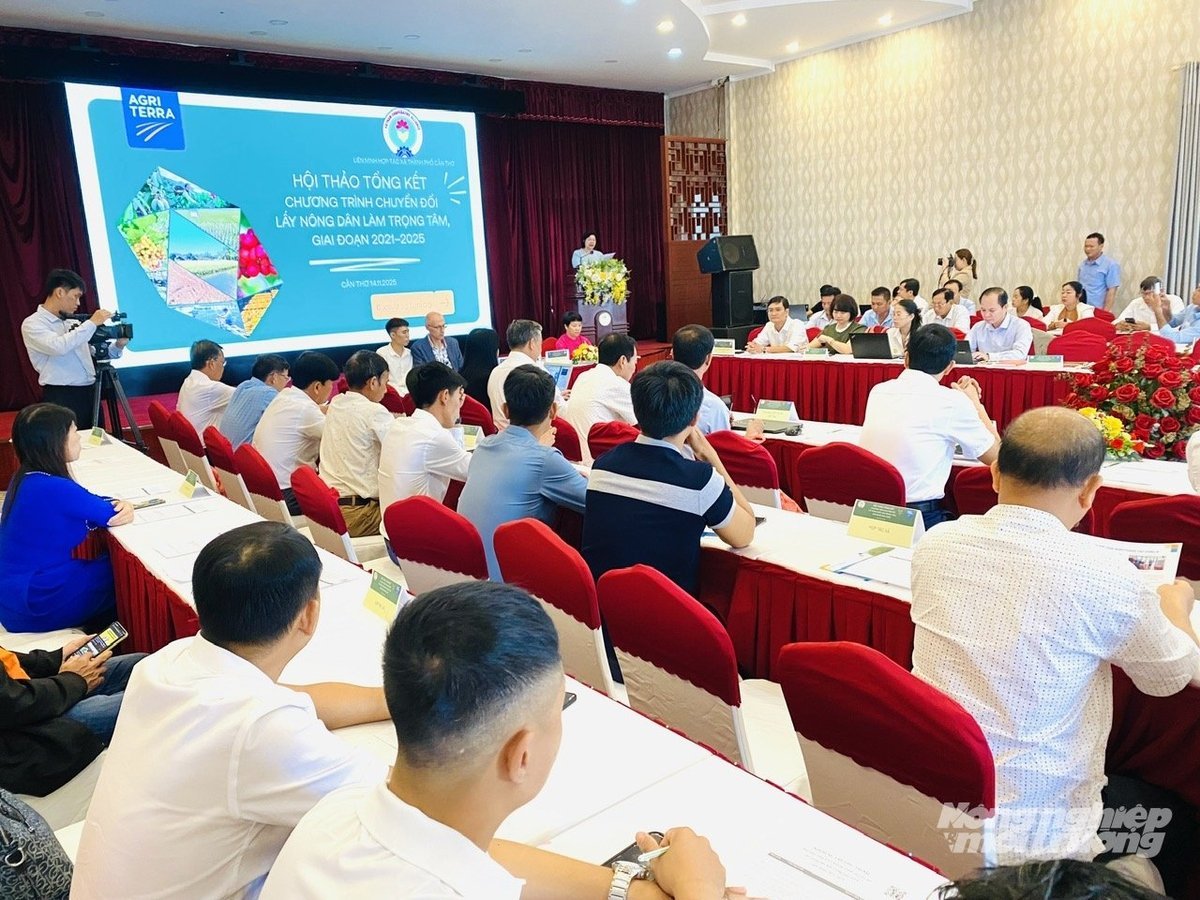
Overview of the workshop summarizing the “Farmer-centric Transformation” (FFT) Program for the period 2021-2025 organized by Agriterra and the Vietnam Cooperative Alliance in Can Tho City. Photo: Le Hoang Vu.
FFT is a global initiative by Agriterra, operating in 13 African and Asian countries, aiming to support 1 million farmers and mobilize 60 million Euros for cooperative development. The program operates on three main pillars: developing farmer-owned businesses, providing sustainable services to cooperative members and promoting policy dialogue between farmers and the state.
In Vietnam, since 2017, Agriterra has accompanied more than 60 cooperatives, 16 provincial/municipal cooperative alliances and Farmers' Associations in 16 localities, bringing benefits to about 80,000 farmers. In the period 2021-2025 alone, the program focuses on supporting 35 cooperatives in the following areas: improving governance capacity, digital transformation, climate change adaptation, service development and enhancing the role of women and youth.
The workshop aims to summarize the results and impacts of the FFT program after 5 years of implementation, share experiences from typical cooperative models, and discuss cooperation orientations in the new period. Main contents include: Summarizing the results of program implementation in Vietnam. Sharing typical cooperative models in governance, services, policy advocacy, connecting cooperatives, businesses, development organizations and management agencies. Further cooperation orientations to build modern, professional and sustainable cooperatives.
A representative of the Department of Agriculture and Environment of Can Tho City assessed that cooperatives play a particularly important role in connecting small-scale farmers with the market. However, cooperatives still face many barriers such as: limited management capacity, difficulty accessing resources and gaps between policy implementation. FFT has contributed to solving each bottleneck through capacity building and promoting policy dialogue.
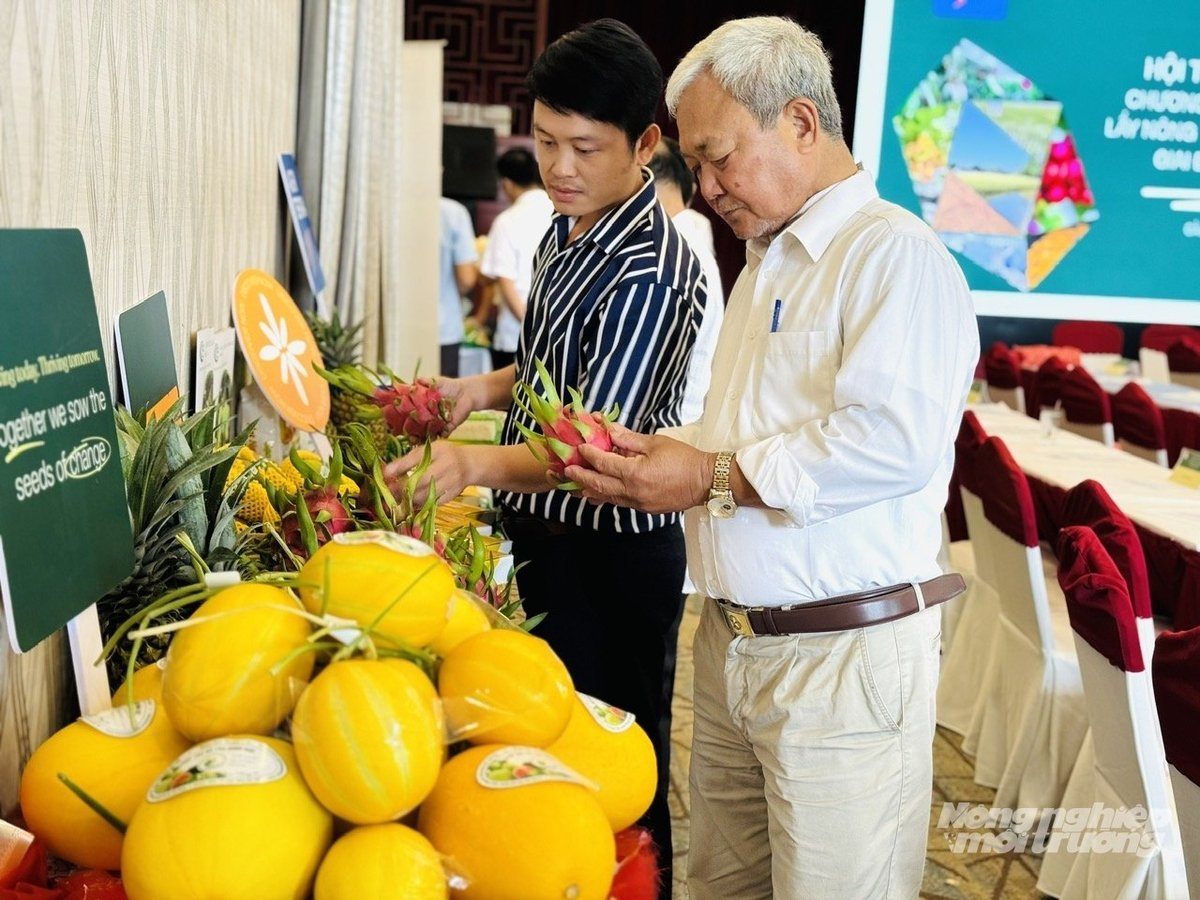
Delegates visit the booth displaying agricultural products of cooperatives, demonstrating the efforts to improve product quality and connect markets within the framework of the FFT program. Photo: Le Hoang Vu.
Mr. Huynh Dang Khoa, Director of Rach Lop Agricultural Cooperative (Hung Hoa Commune, Vinh Long Province), shared the unit's innovation process during its participation in FFT. The Cooperative was established in 2016, currently has 519 members, including a 7-member Board of Directors (expected to increase to 11), a 3-member Supervisory Board and a 5-member Board of Directors along with many specialized teams such as: production team, spraying team, material supply team, irrigation team and drone flight service team. Currently, Rach Lop Cooperative aims to complete the rice value chain, linking smart rice production with the Project of 1 million hectares of high-quality, low-emission rice.
Mr. Khoa said that recently, the cooperative has achieved many good results thanks to FFT including: 51 members directly benefited, average income increased significantly. Total annual revenue reached 15 billion VND, profit 9 billion VND, reduced input costs thanks to purchasing quality materials at reasonable prices. Increased product value thanks to market linkage, signing of consumption contracts. Service innovation: providing post-harvest services, drones, irrigation...
According to Mr. Khoa, the most important thing is to change the management mindset, from the traditional model to a market-oriented model, increasing the role of members, financial transparency and professionalism in operations.
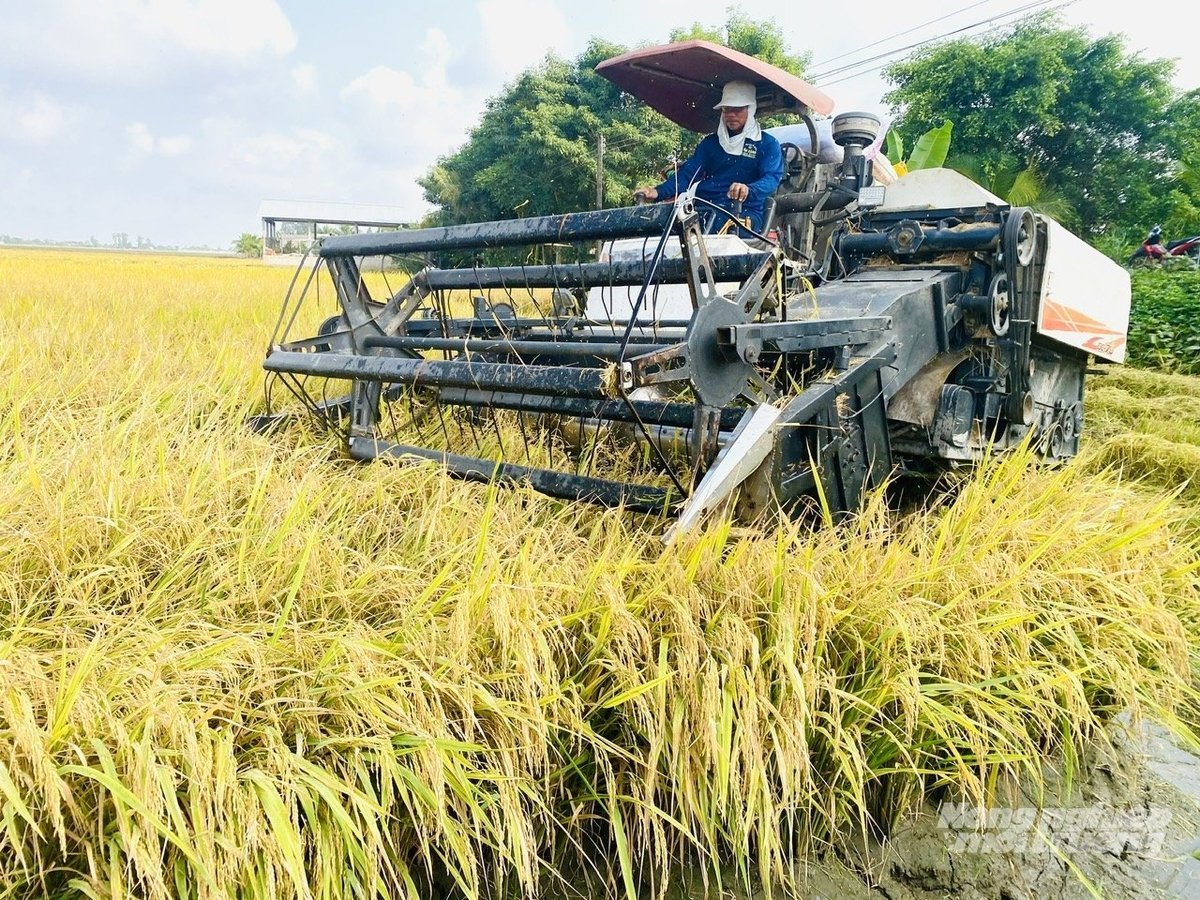
Farmers apply mechanization in rice harvesting at agricultural cooperatives in the Mekong Delta, a direction to help cooperatives increase productivity, reduce costs and adapt to climate change according to FFT orientation. Photo: Le Hoang Vu.
FFT moves from support to farmer empowerment
Ms. Cao Xuan Thu Van, President of the Vietnam Cooperative Alliance, emphasized: Cooperatives are economic organizations but have a clear social character, focusing on the interests of members. Unlike enterprises, the decision-making power of cooperatives does not depend on the level of capital contribution. Therefore, improving the capacity of members is the key to helping cooperatives develop sustainably.
Ms. Van believes that FFT is not only a support project, but also creates a shift in thinking: from habitual production to production according to market and consumer needs. When the product meets the needs, the farmers themselves will decide the value of the product, instead of being passively influenced by market prices as before.
The program also helps cooperatives develop business plans, improve financial management, apply digital transformation and develop services. Many models have created a buzz, such as the coffee growing cooperative in the Central region applying technology to measure, monitor crops, and trace origins with the goal of attaching each ton of coffee to a carbon certificate, optimizing the selling price to the market.
In addition, FFT has strongly promoted the linkage process between cooperatives, enterprises, international organizations and management agencies. Many models of agricultural value chain linkage have been formed, helping cooperatives sign contracts for stable product consumption, reducing market risks.
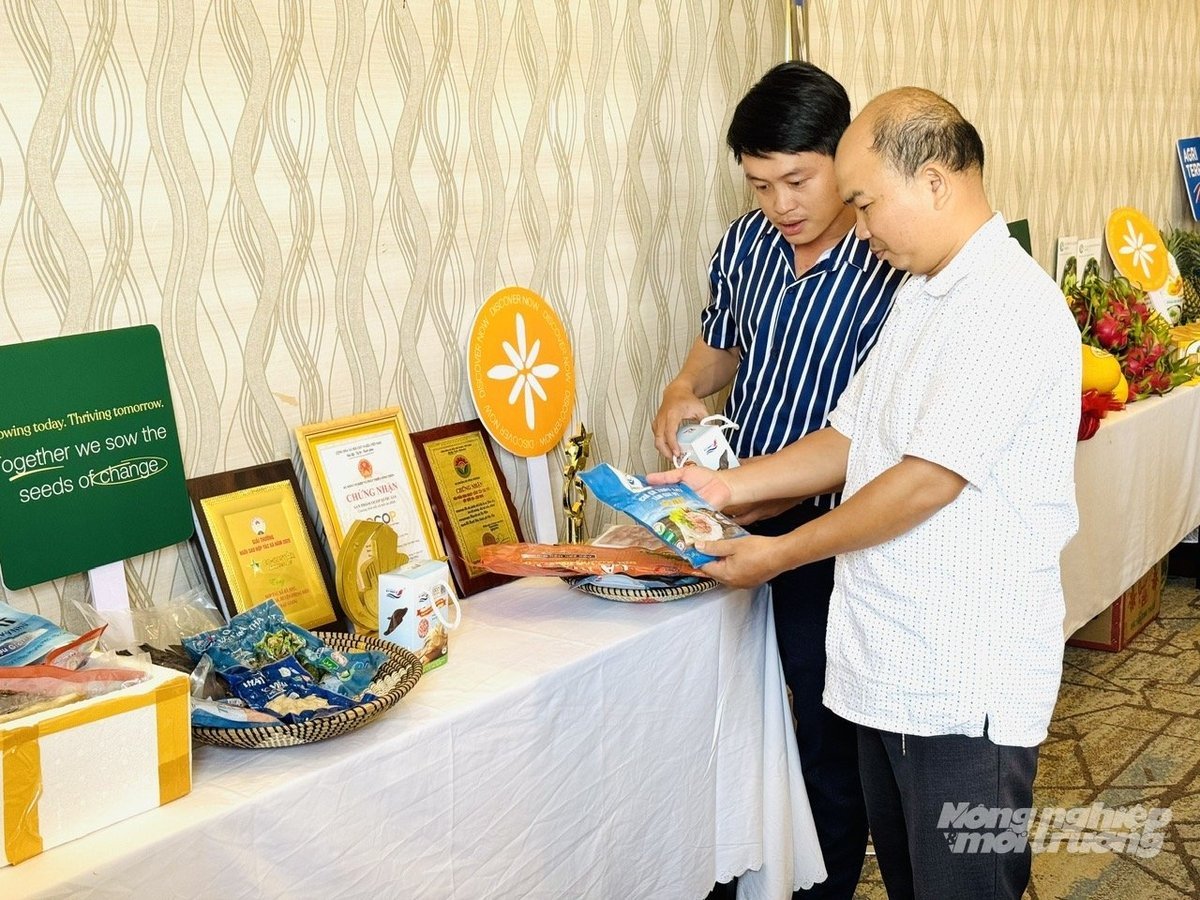
Many products of cooperatives in the Mekong Delta have achieved OCOP certification of 3 stars or higher. Photo: Le Hoang Vu.
In many localities, especially in Hau Giang, Can Tho, Vinh Long... the program supports cooperatives to increase business capacity to access resources, participate in the Cooperative Development Project according to the Central Resolution. Digital transformation is also a highlight, when many cooperatives boldly apply production management applications, quality monitoring, electronic records, and use drones to reduce costs and improve efficiency.
Some cooperatives have even moved towards a production model based on “digital crop maps”, connecting with export enterprises and preparing to participate in the carbon credit market, a new direction for sustainable agriculture.
According to Ms. Van, the greatest value of FFT lies not only in the number of cooperatives supported, but also in the spirit of cooperation, innovation, and confidence spreading in the farming community. From forums, connections, and experience sharing, cooperatives have proactively sought markets, applied technology, and expanded cooperation.
Many small models initially only cover a few hectares, then expand to hundreds of hectares as farmers voluntarily participate when they see the effectiveness. These results show that the innovation capacity of Vietnamese farmers is being unleashed in the right direction.
“FFT phase 2021-2025 has ended but the transformation journey of cooperatives continues. From the established foundation, Vietnamese cooperatives are entering a new development phase: stronger, more professional and more closely connected to the market, for a sustainable - inclusive - prosperous agriculture”, affirmed Ms. Cao Xuan Thu Van - President of the Vietnam Cooperative Alliance.
Source: https://nongnghiepmoitruong.vn/thuc-day-chuyen-doi-so-va-nang-cao-nang-luc-cho-htx-nong-nghiep-dbscl-d784227.html


![[Photo] General Secretary To Lam receives Governor of Kanagawa Province (Japan) Kuroiwa Yuji](https://vphoto.vietnam.vn/thumb/1200x675/vietnam/resource/IMAGE/2025/11/15/1763204231089_a1-bnd-7718-5559-jpg.webp)
![[Photo] Panorama of the 2025 Community Action Awards Final Round](https://vphoto.vietnam.vn/thumb/1200x675/vietnam/resource/IMAGE/2025/11/15/1763206932975_chi-7868-jpg.webp)

![[Photo] General Secretary To Lam receives Vice President of Luxshare-ICT Group (China)](https://vphoto.vietnam.vn/thumb/1200x675/vietnam/resource/IMAGE/2025/11/15/1763211137119_a1-bnd-7809-8939-jpg.webp)









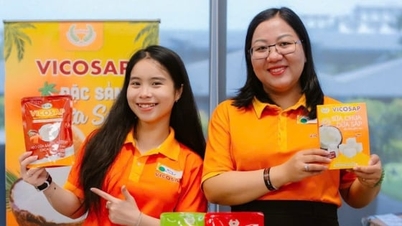


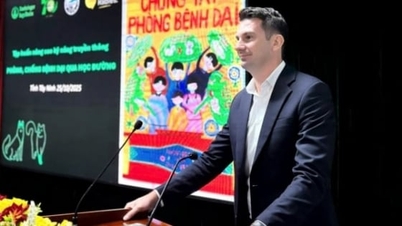
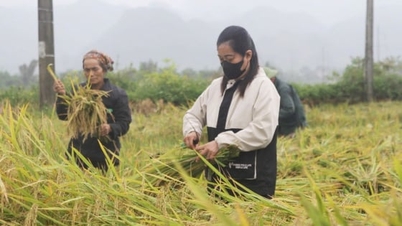
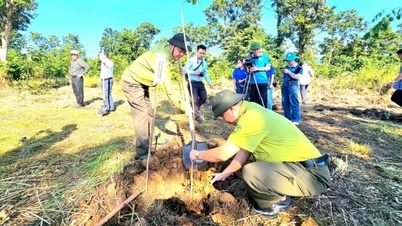
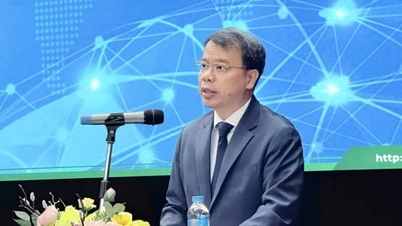
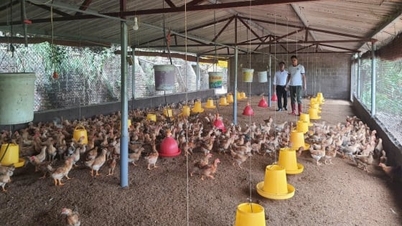
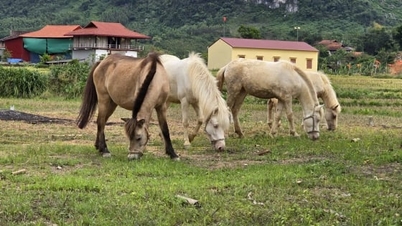




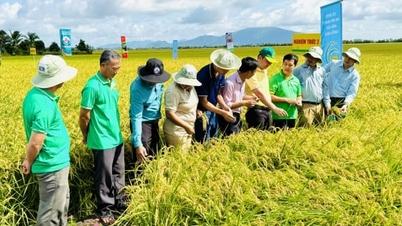
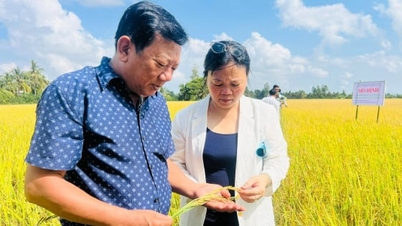
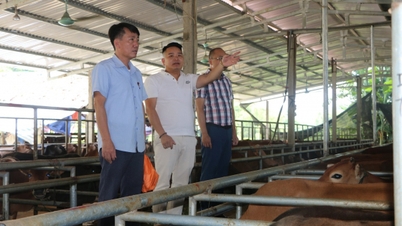
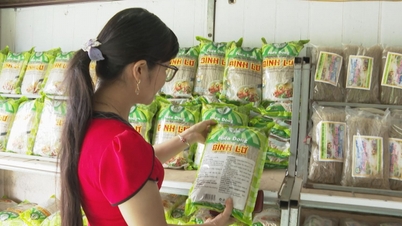
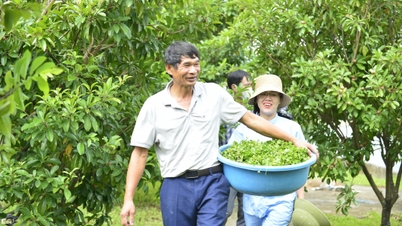
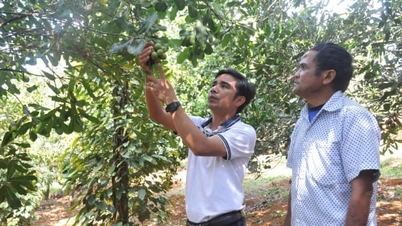




































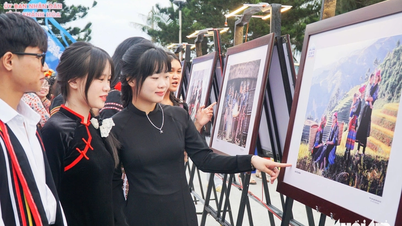



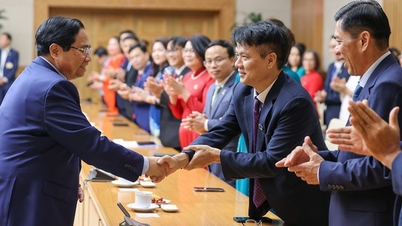
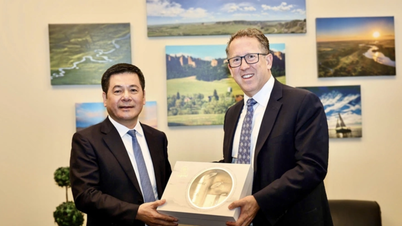


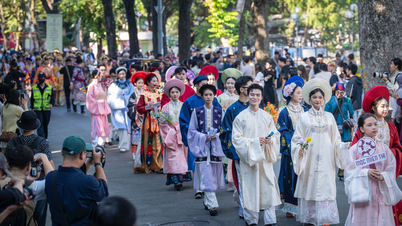
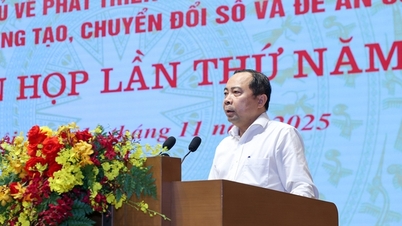

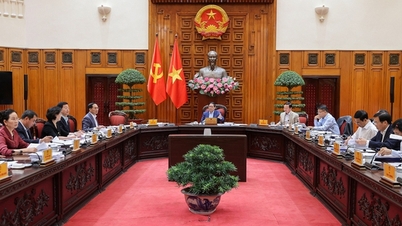
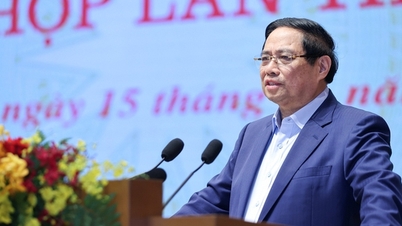
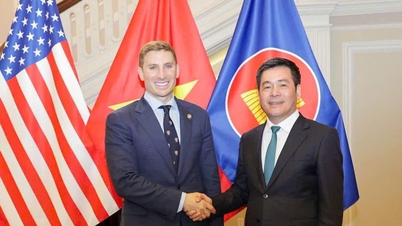


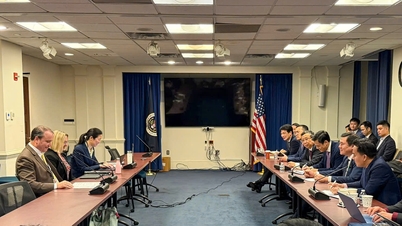
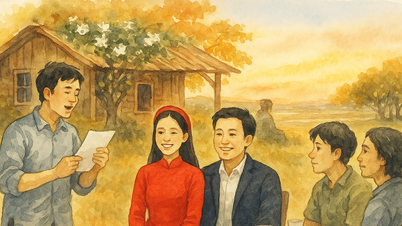



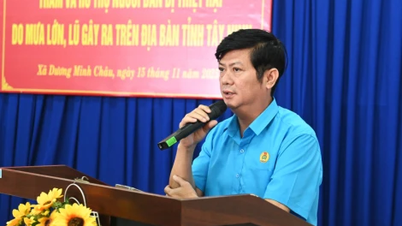

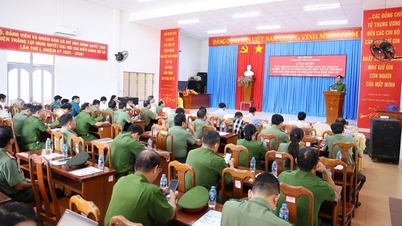

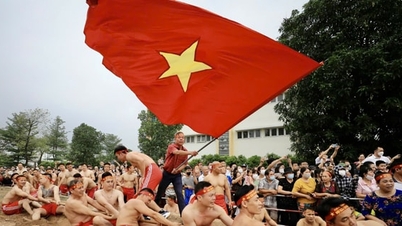
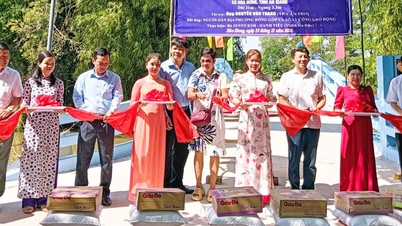










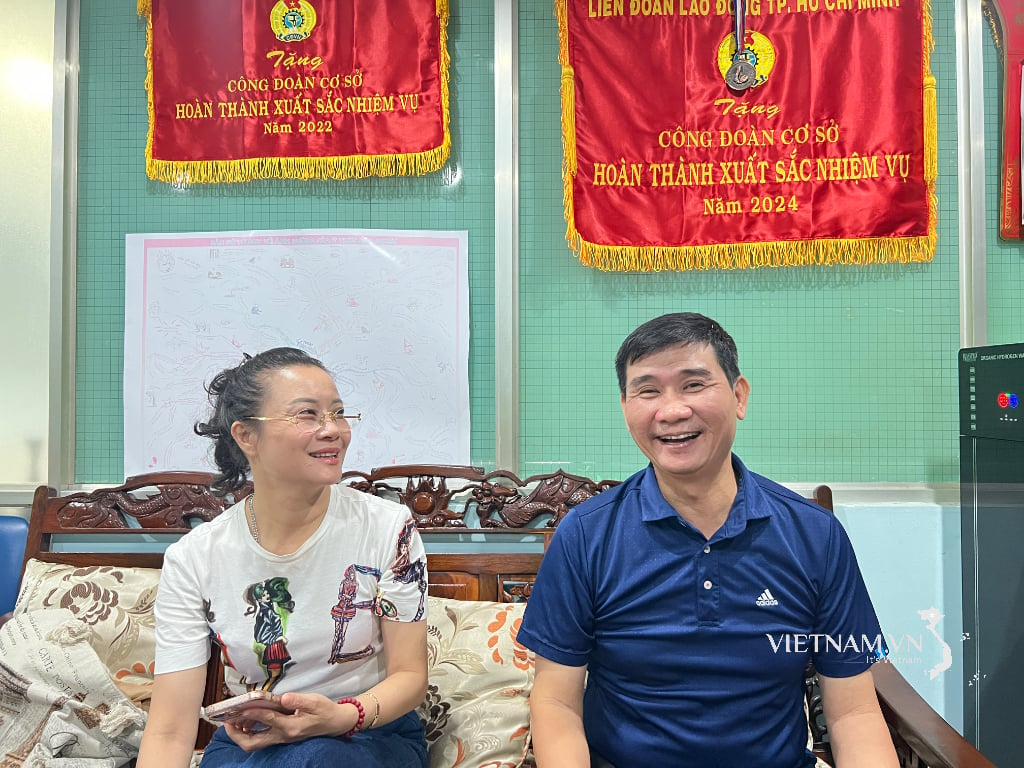

Comment (0)